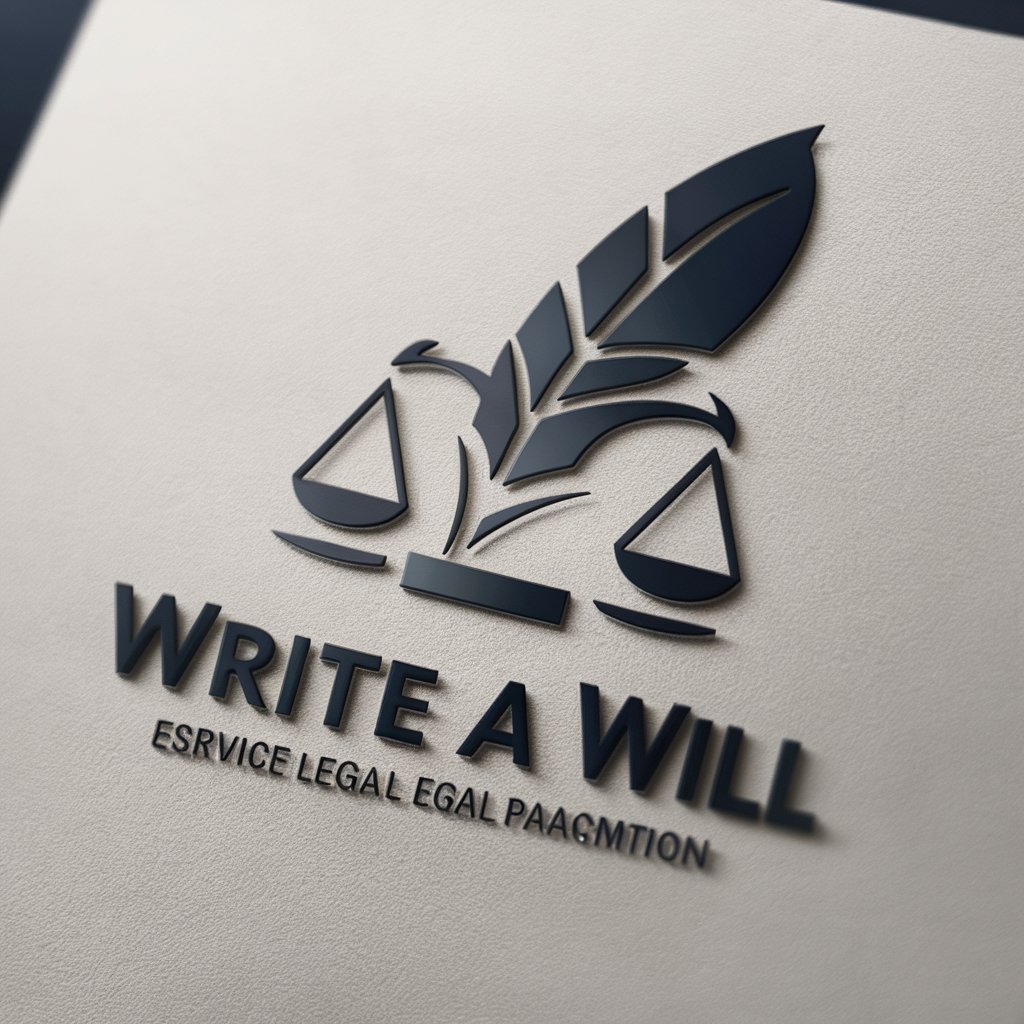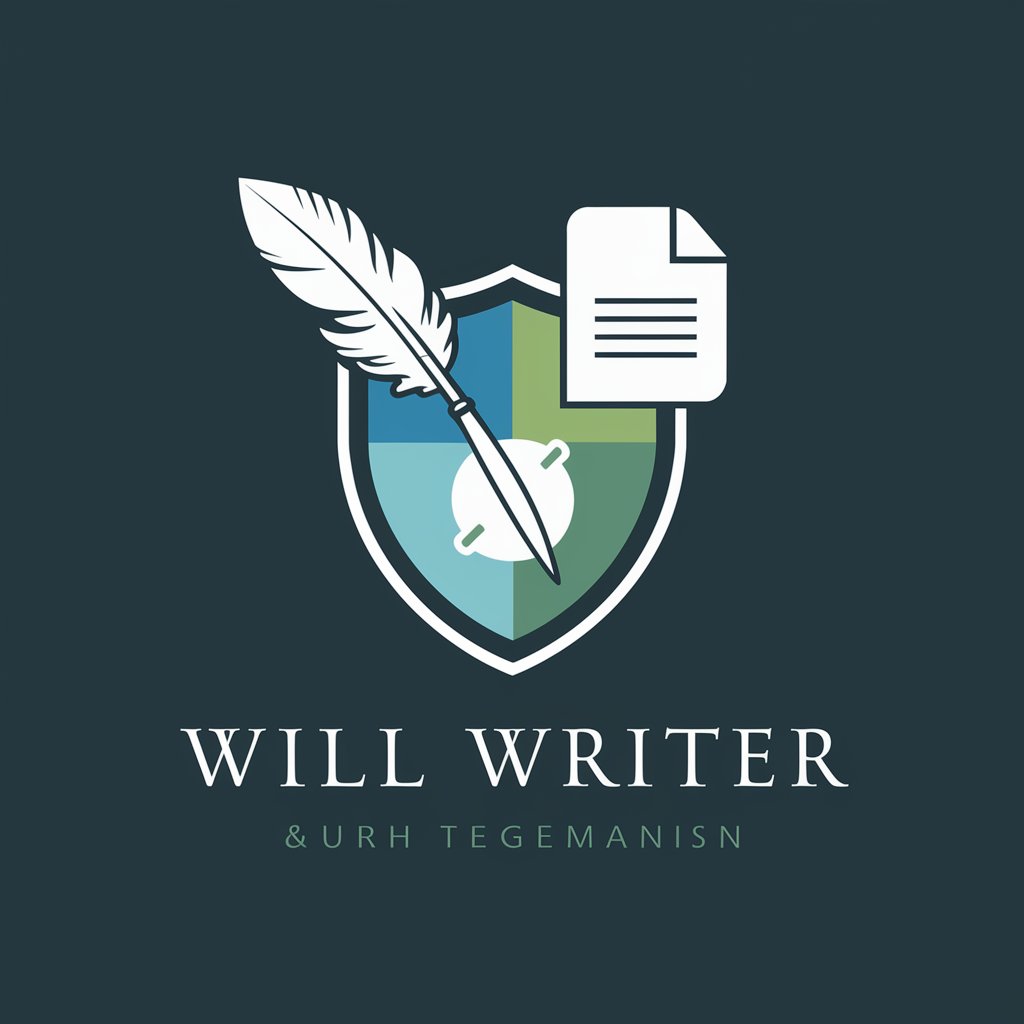4 GPTs for Legal Document Creation Powered by AI for Free of 2026
AI GPTs for Legal Document Creation refers to the use of Generative Pre-trained Transformers, a type of artificial intelligence, to automate the process of drafting, editing, and managing legal documents. These tools leverage natural language processing and machine learning to understand and generate legal texts, making them particularly adept at handling a variety of tasks within the legal domain. By providing tailored solutions, AI GPTs can significantly enhance efficiency, accuracy, and accessibility in the creation and management of legal documents.
Top 4 GPTs for Legal Document Creation are: Farewell: Create Your Last Will & Testament,Write a Will,Will Writer,Agreement Architect
Farewell: Create Your Last Will & Testament
Simplify will-making with AI guidance

Write a Will
Simplify estate planning with AI

Will Writer
Simplifying Will Creation with AI

Agreement Architect
Crafting AI-Powered Partnership Agreements.

Key Attributes and Functions
AI GPTs for Legal Document Creation exhibit unique characteristics that set them apart, including adaptability to various legal contexts, from contract generation to compliance documentation. These tools are capable of understanding complex legal language and concepts, ensuring the produced documents are relevant and accurate. Special features may include support for multiple languages, integration with legal databases for research, technical support for both basic and advanced legal inquiries, and the ability to tailor documents to specific jurisdictions or legal requirements.
Who Benefits from AI Legal Document Tools
The primary users of AI GPTs for Legal Document Creation span from legal professionals, such as lawyers and paralegals, to businesses requiring legal documents, and even individuals in need of legal forms or advice. These tools are designed to be user-friendly, making them accessible to novices without coding skills, while also offering extensive customization options for developers and professionals who seek to adapt the technology more closely to their specific needs.
Try Our other AI GPTs tools for Free
Beneficiary Designation
Discover how AI GPTs for Beneficiary Designation can transform your approach to managing beneficiaries with precision, efficiency, and ease. Tailored for both novices and professionals, these tools offer innovative solutions to streamline the designation process.
Guardianship Appointment
Discover AI GPTs for Guardianship Appointment: cutting-edge tools designed to streamline the guardianship process with tailored legal solutions, making it simpler and more accessible.
Botanical Exploration
Explore the plant kingdom with AI GPTs for Botanical Exploration: your digital tool for plant identification, research, and educational insights.
Home Sales
Discover how AI GPTs are transforming the home sales process, offering personalized, efficient solutions for real estate professionals and clients alike.
Real Estate Insight
Discover AI GPTs for Real Estate Insight: Adaptive tools transforming property management, market analysis, and investment strategies through advanced AI technology.
Transaction Coordination
Discover how AI GPTs revolutionize Transaction Coordination with automated processes, real-time communication, and customizable solutions for all industry professionals.
Expanding Horizons with AI in Legal Documentation
AI GPTs as custom solutions in legal documentation are increasingly becoming sophisticated, offering user-friendly interfaces that cater to both professionals and laypersons. Their ability to integrate with existing legal systems and workflows represents a significant step forward in legal technology, streamlining operations and making legal services more accessible.
Frequently Asked Questions
What exactly are AI GPTs for Legal Document Creation?
AI GPTs for Legal Document Creation are advanced AI tools designed to automate and enhance the process of drafting, reviewing, and managing legal documents through the use of machine learning and natural language processing technologies.
Who can use these AI GPT tools?
These tools are designed for a wide range of users including legal professionals, businesses, and individuals seeking assistance with legal document tasks.
Do I need coding skills to use these tools?
No, these tools are developed with user-friendly interfaces that allow those without coding skills to easily create and manage legal documents.
Can AI GPTs customize documents for different legal systems?
Yes, many AI GPTs for Legal Document Creation can tailor documents to fit the specific requirements of various legal systems and jurisdictions.
How do these tools ensure the accuracy of legal documents?
These tools are trained on extensive legal databases and constantly updated to ensure compliance with current laws and regulations, thereby maintaining a high level of document accuracy.
Can these AI tools integrate with existing legal software?
Yes, many AI GPTs are designed to seamlessly integrate with existing legal software and systems, enhancing workflow efficiency.
Are AI-generated legal documents legally binding?
AI-generated documents, when properly reviewed and utilized, can be legally binding. However, it's essential to ensure they meet all legal requirements of the relevant jurisdiction.
What is the future of AI in legal document creation?
The future of AI in legal document creation is promising, with advancements expected to further improve accuracy, customization, and integration capabilities, revolutionizing how legal professionals and businesses handle legal documentation.